9 Foods a Neurosurgeon Eats To Keep His Brain Young
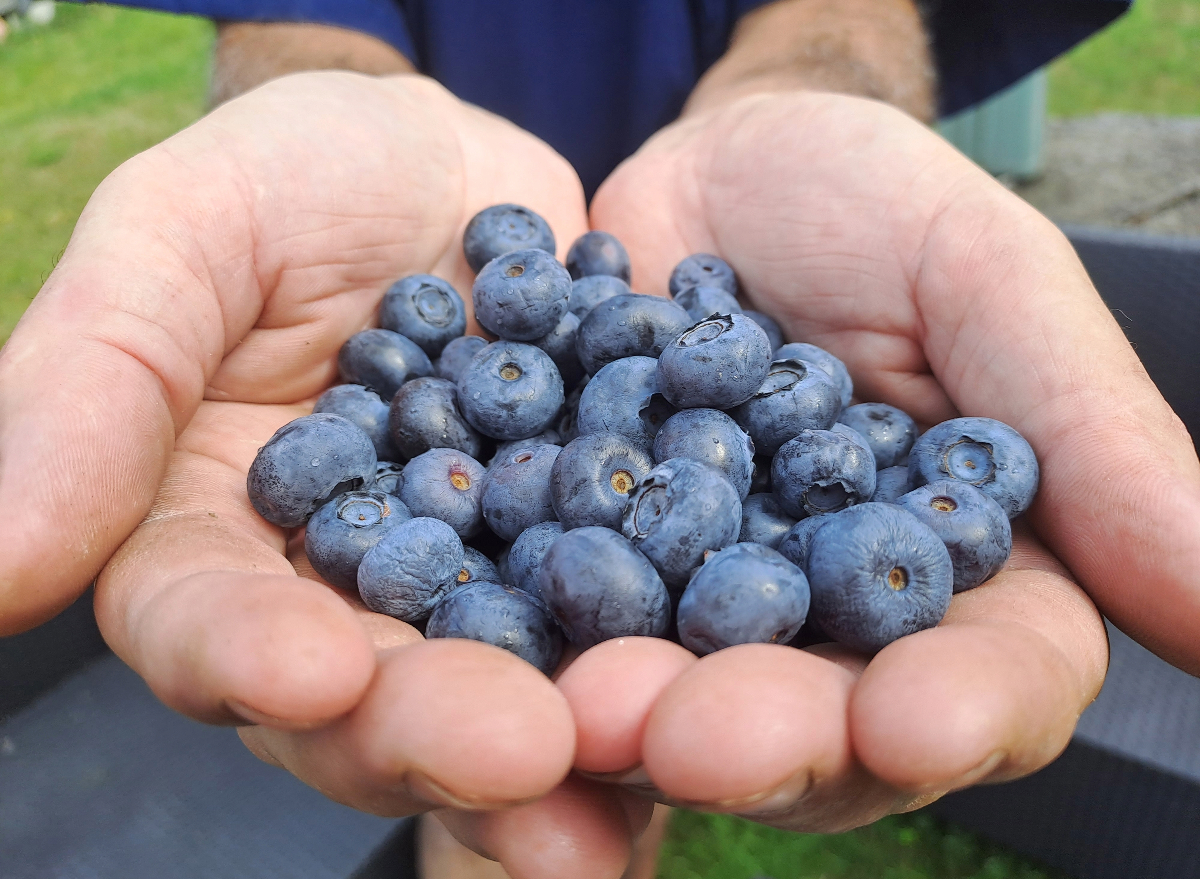
Taking care of your brain on a regular basis is essential. After all, your brain supports your overall well-being; it controls your body's functioning, communication, decision-making, and problem-solving abilities, according to the World Federation of Neurology. In fact, it's probably the most treasured organ in your body. So naturally, you're likely wondering what healthy habits you can follow in order to keep your brain in tip-top shape. Get excited, because we went directly to the source and found out the best foods to keep your brain young, according to a neurosurgeon.
Dr. Brett Osborn, a board-certified neurosurgeon, section chief at St. Mary's Medical Center, and president and founder of Senolytix, a preventative health care and anti-aging facility in West Palm Beach, Florida, breaks down the foods he consumes regularly to keep his brain young and healthy—and encourages you to do the same!
"Just like the body, the brain requires proper nourishment to function optimally," Dr. Osborn tells us. "Fortunately, nature provides an array of foods that are not only delicious but also beneficial for brain health. You'll notice that most of those listed temper inflammation which is a major underpinning of the aging process and non-infectious age-related diseases that not only affect the brain, but also the body."
Who would think that what you eat could have such an impact on your brain power? Well, it certainly does. "The significance of proper nutrition for brain health cannot be overstated," Dr. Osborn stresses. "It is the foundation upon which our mental acuity and vitality rest. Just as we care for our bodies through exercise and a balanced diet, nurturing our brains through the right foods is essential for a vibrant and youthful mind. So, as is stated in the pages of Get Serious, don't forget about your brain."
If you're curious about what a neurologist eats on a regular basis, keep reading to learn more. We're here with some of the best foods that keep your brain young. When you're finished, get inspired by 5 Essential Tips To Live Longer From a Neurosurgeon.
Blueberries
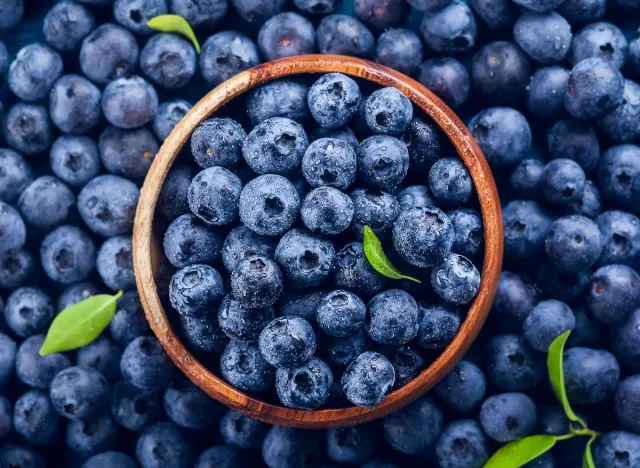
Blueberries are such a simple food to add to your weekly meal rotation. Whether you add them to your cereal or oats each morning, or enjoy them with a drizzle of farm-fresh honey for dessert, you're doing your body a favor by consuming this delightful fruit!
Dr. Osborn explains, "Blueberries are rich in antioxidants called anthocyanins, which help protect the brain from oxidative stress and inflammation. Studies suggest that regular consumption of blueberries may improve memory and delay age-related cognitive decline. I eat blueberries every day in either a smoothie or atop a salad."
Fatty Fish
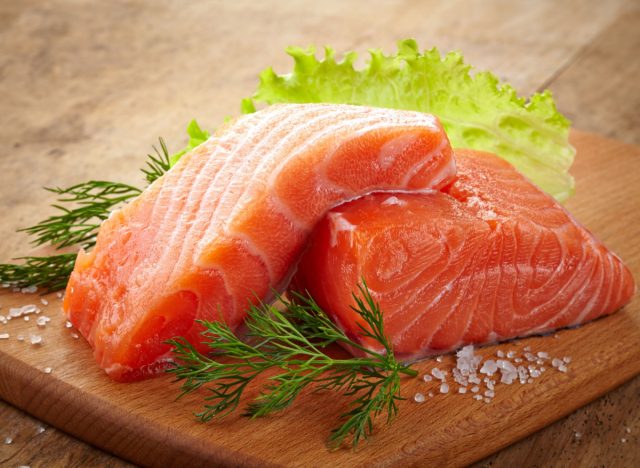
Fatty fish such as mackerel, salmon, and sardines offer plenty of omega-3 fatty acids, which provide anti-inflammatory benefits. "These essential fats are crucial for maintaining brain health and have been linked to improved memory, mood regulation, and reduced risk of cognitive decline," Dr. Osborn shares. "As I don't like fish, I take a medical-grade omega-3 supplement for a total of 6,000 mg (6 g) daily. This may seem excessive, but my blood inflammatory markers and my triglyceride levels tell a different story."
Leafy Greens
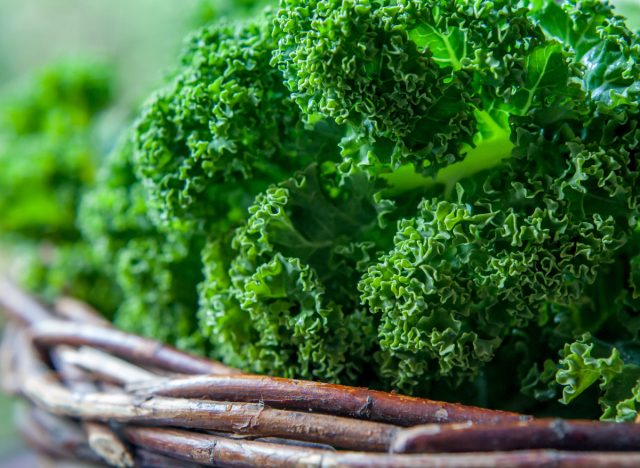
Leafy greens are a diet staple, but did you know that greens like kale and spinach are filled to the brim with antioxidants, minerals, and vitamins that are awesome for your brain health "They promote healthy brain function by reducing inflammation and improving cognitive performance," Dr. Osborn tells us. "I use raw spinach in my morning smoothie or a super-green powder as a substitute. The powder also has probiotics in it, and a healthy gut typically equates to a heathy brain given the crosstalk between the two."
Nuts and Seeds
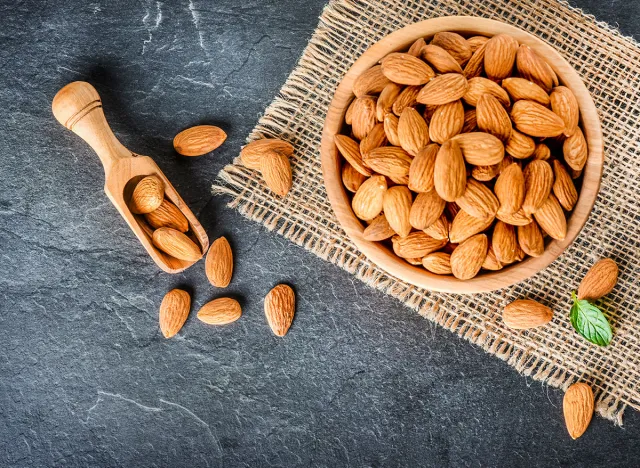
Nuts and seeds are another must-have pantry item you can seamlessly add to snacks and meals. Top off your oatmeal with some almonds, or whip up a healthy nuts and seeds trail mix for a snack.
"Nuts and seeds, like walnuts, almonds, flaxseeds, and chia are rich in antioxidants and healthy fats," says Dr. Osborn. "They provide a steady supply of energy to the brain and support cognitive function. If you have a big presentation at work, have a handful of walnuts for breakfast, nothing else (aside from 16 ounces of water). Your brain assuredly will be firing on all cylinders. Fun fact: Walnuts look like a brain. See for yourself!"
Broccoli
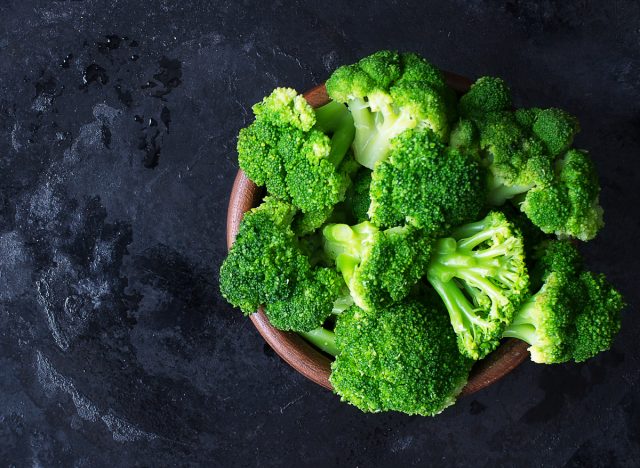
Bring on the broccoli! This cruciferous veggie typically gets a bad rap, but it's so healthy for your mind and body. "[Broccoli] contains compounds like sulforaphane, which have been linked to reduced inflammation and improved brain health," Dr. Osborn tells us. "To boot, sulforaphane is also a cancer chemopreventive agent, particularly for breast cancer. Drop some broccoli into your morning smoothie."
Eggs
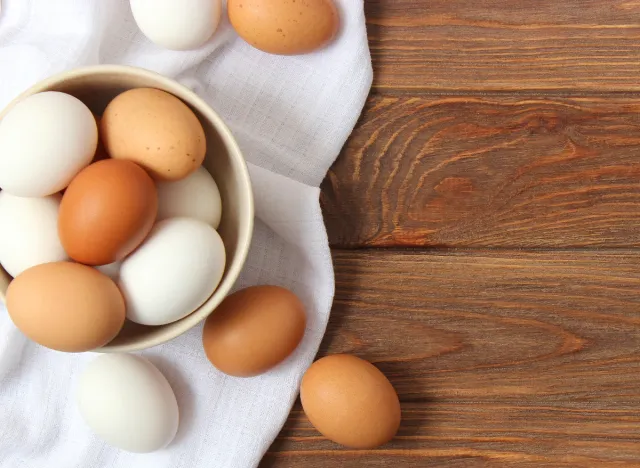
Let's be honest: Eggs are simply the best. You can enjoy them for basically any meal of the day. In fact, eggs contain choline, which is an essential nutrient that produces acetylcholine, "a neurotransmitter important for memory and cognitive function." Dr. Osborn adds, "The fat in egg yolks also supports cholesterol production that is necessary for the synthesis of myelin, the insulating substance around neurons that facilitates axonal conduction, like insulation around your electrical wiring. So, don't skip your whole eggs. They're not bad for you as you may have been erroneously told."
Turmeric
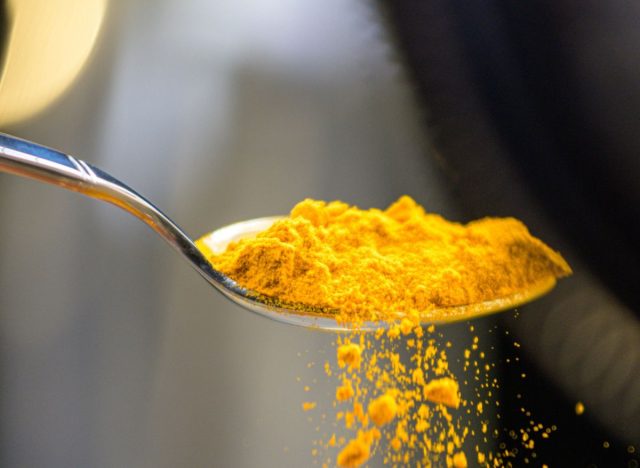
Turmeric should be your new favorite spice in your pantry. According to Dr. Osborn, "Turmeric contains an active compound called curcumin, which possesses powerful anti-inflammatory and antioxidant properties. Curcumin has been shown to enhance memory and may play a role in reducing the risk of neurodegenerative diseases. In fact, it is believed that Indians' lesser incidence of Alzheimer's disease (relative to Americans) is due to their high daily consumption of turmeric."
Dr. Osborn includes two grams of turmeric in his morning smoothie. You can also consider whipping up turmeric golden milk as a pre-bedtime treat!
Ginger
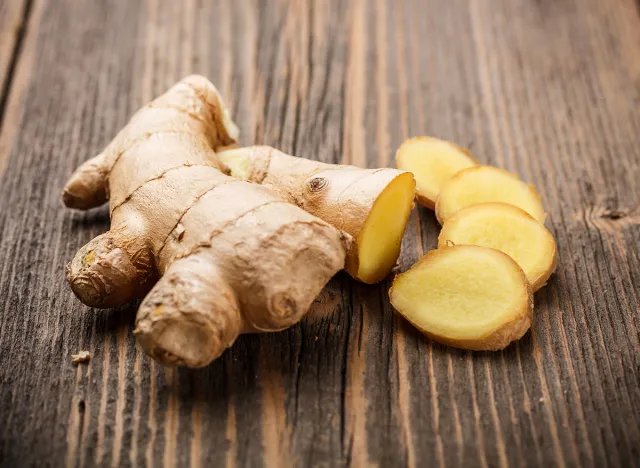
If you're a fan of Asian dishes, you're likely quite familiar with ginger. "Ginger is a potent anti-inflammatory agent that has been shown to enhance cognitive function," says Dr. Osborn. "The antioxidant effects are also thought to protect neurons against oxidative stress that underpin neurodegenerative diseases such as Parkinson's and Alzheimer's disease. Like turmeric, ground ginger is also added to my morning smoothie."
Exogenous Ketones
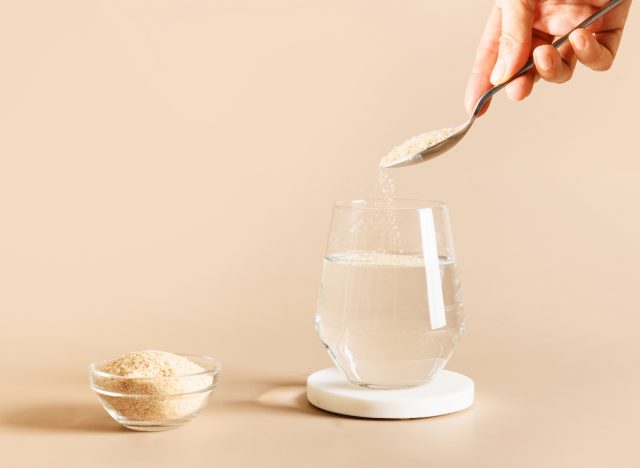
You don't have to follow a ketogenic diet in order to reap the benefits of the "fourth macronutrient," aka ketones. "Ketones increase the production of brain-derived neurotrophic factor—a protein that increases synaptogenesis and, therefore, learning and memory—and act as a fuel source for the brain, heart, and muscle. Double bonus," Dr. Osborn says. "And they're available in powdered form, so no need to deprive yourself of much-need carbohydrates as do those on ketogenic protocols. I use the caffeinated versions as part of my pre-workout drink. Pour them into your bottled water, and off you go."
- Source: https://www.ncbi.nlm.nih.gov/pmc/articles/PMC2850944/
- Source: https://pubmed.ncbi.nlm.nih.gov/37028557/
- Source: https://pubmed.ncbi.nlm.nih.gov/19515491/
- Source: https://www.ncbi.nlm.nih.gov/pmc/articles/PMC2781139/
- Source: https://newsroom.ucla.edu/releases/curcumin-improves-memory-and-mood-new-ucla-study-says
- Source: https://www.ncbi.nlm.nih.gov/pmc/articles/PMC3253463/









